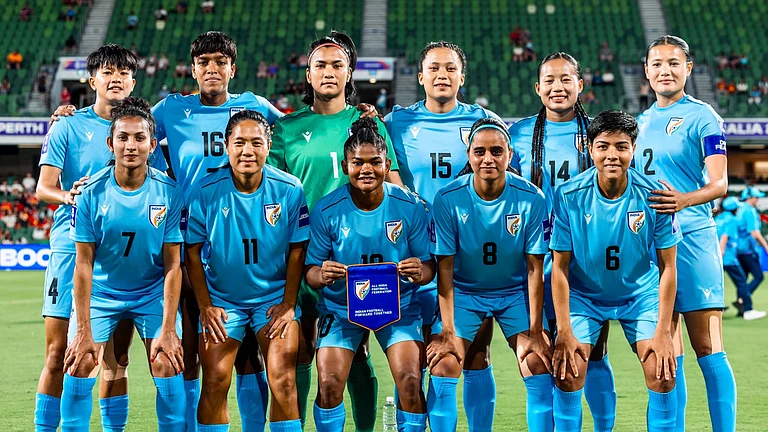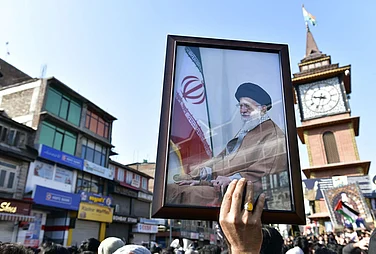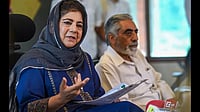Even as women are banned from public life and higher education in Afghanistan, Taliban's Supreme Leader Hibatullah Akhundzada said on Sunday that his regime has taken the necessary steps for the betterment of women's life in the country, providing them a "comfortable and prosperous life" under Islamic law.
After the Taliban took control of Afghanistan in August 2021 after toppling the US-backed government, the Taliban has banned education for girls beyond class 6, has banned them from public places, has banned women's sports, and has also banned them from working, especially for non-governmental organisations (NGOs) and the United Nations (UN).
The Taliban released Akhundzada's statement ahead of the Eid al-Adha holiday, which will be celebrated later this week in Afghanistan and other Islamic countries. Akhundzada, an Islamic scholar, rarely appears in public or leaves the Taliban heartland in Afghanistan's southern Kandahar province. He surrounds himself with other religious scholars and allies who oppose education and work for women.
In his Eid message, Akhundzada said that under the rule of the Islamic Emirate, concrete measures have been taken to save women from many traditional oppressions, including forced marriages, "and their Shariah rights have been protected". Moreover, "necessary steps have been taken for the betterment of women as half of society in order to provide them with a comfortable and prosperous life according to the Islamic Shariah", the message continued.
Lately, Akhundzada appears to have taken a stronger hand in directing domestic policy, banning girls' education after the sixth grade and barring Afghan women from public life and work, especially for nongovernmental organisations and the United Nations.
The message was distributed in five languages: Arabic, Dari, English, Pashto and Urdu. Akhundzada said the negative aspects of the previous 20-year occupation related to women's wearing of the hijab and "misguidance" will end soon.
He added, "The status of women as a free and dignified human being has been restored and all institutions have been obliged to help women in securing marriage, inheritance and other rights."
Despite initial promises of a more moderate rule than during their previous stint in power in the 1990s, the Taliban has imposed harsh measures since seizing Afghanistan in August 2021 as US and NATO forces were pulling out. They have barred women from public spaces, like parks and gyms, and cracked down on media freedoms. The measures have triggered a fierce international uproar, increasing the country's isolation at a time when its economy has collapsed — and worsening a humanitarian crisis.
Akhundzada reiterated his call for other countries to stop interfering in Afghanistan's internal affairs. He said the Taliban government wants good political and economic relations with the world, especially with Islamic countries, and has fulfilled its responsibility in this regard.
Akhundzada's message also condemned Israel's behaviour toward the Palestinians and called on the people and government of Sudan to set aside their differences and work together for unity and brotherhood.
(With AP inputs)






















